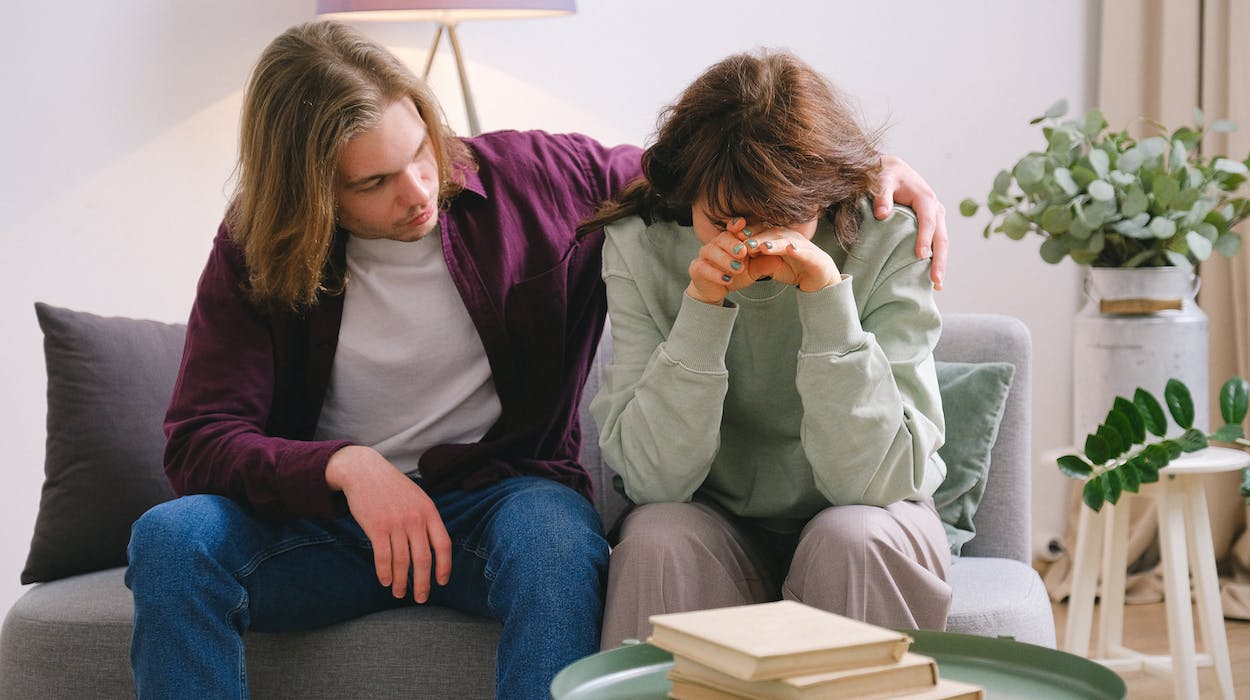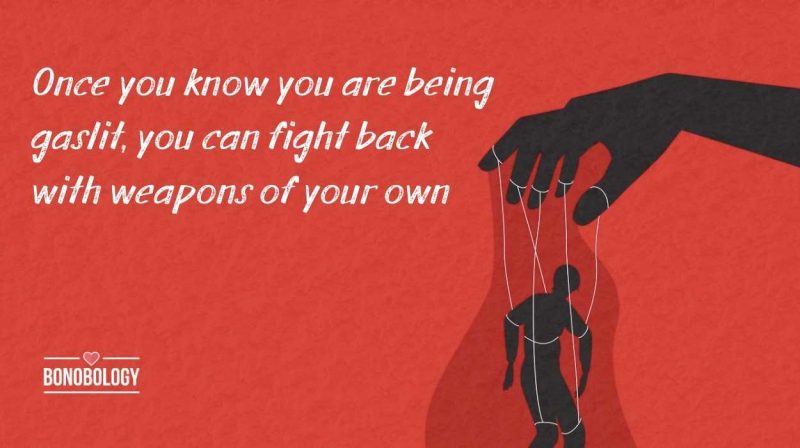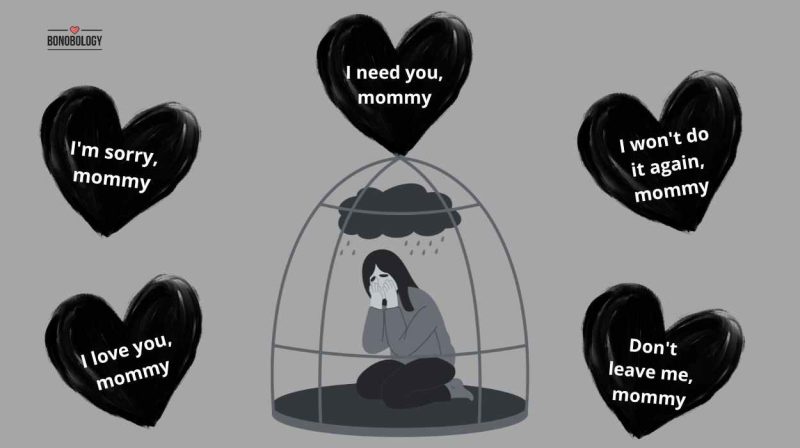Relationships, at the best of times, are challenging affairs to navigate, and past sexual trauma makes them even more difficult. A WHO report states that 1 in 3 women are subjected to physical or sexual violence globally. Even more worrying is that 1 in 4 girls/women aged 15 to 24 years have experienced some form of sexual abuse or violence by an intimate partner. Have you been seeing everyday signs your girlfriend was sexually abused in the past, and is part of these alarming statistics? If you’re dating a sexual abuse survivor, then you need to educate yourself on this subject.
So, what constitutes sexual abuse and sexual trauma? According to psychologist Nandita Rambhia (MSc Psychology), who specializes in CBT, REBT, and couple’s counseling, sexual abuse is defined as “exposure of a person to any kind of inappropriate sexual behavior by another person. The abuse could be physical, sexual assault, molestation or rape, or could also include verbal sexual abuse. Sexual trauma occurs when sexual abuse causes the victim a great deal of stress and prevents them from functioning optimally.”
Let’s try to identify the signs your girlfriend was sexually abused in the past. So that you can support her with a greater degree of sensitivity and awareness.
11 Possible Signs Your Girlfriend Was Sexually Abused In The Past
Table of Contents
The American College of Obstetricians and Gynaecologists (ACOG) defines sexual abuse, especially child sexual abuse, as any type of sexual activity where consent is not or cannot be given. This will include any sexual contact that is accomplished by force or the threat of force. Legal definitions vary by state, and state guidelines are available here. If you go through these, you might even spot subtle signs your girlfriend was sexually abused in the past, even when she’s not vocal about it.
Some people think they ‘deserve’ to know the details of their partner’s past abuse. A Reddit user says, “Reliving it isn’t necessarily a healthy thing to do with you. Maybe in therapy with a trained counselor, but again, that’s her choice. This isn’t about you.” Another Reddit user says, “It’s a personal tragedy that I have no place in needing to know … Exposing the wound just so you can take a look inside when she hasn’t healed enough will just make things worse.”
This is why we’ve created a list of signs someone was sexually abused in the past, so you know exactly how to support your partner even when she’s not ready to share.
Related Reading: What Is Abuse In A Relationship?
1. Your partner has difficulty with intimacy
Having a difficult time building an intimate relationship is a common sign that your partner may have been sexually abused in the past. Those with a history of past sexual abuse often have difficulty in forming and maintaining emotional intimacy with their partners. This stems from their traumatic experiences of sexual abuse, which makes it difficult for them to trust others and be vulnerable with a man. The fear of being hurt again may manifest in several ways:
- Reluctance to open up about their thoughts and feelings
- Changing topics when the conversation gets deep
- Signs of discomfort with physical touch like hugs and caresses
Recognizing these signs of sexual abuse for what they are will help deal with the issue. Do not read her responses as indicative of rejection or a lack of interest but rather as a coping mechanism. This will create a safe and supportive environment in which your girlfriend can learn to deal with her fears and become comfortable with intimacy. Empower her and focus on the things she can do well, instead of what she’s unable to.
2. She avoids sexual contact
Nandita says, “Avoiding sexual contact is one of the more obvious signs your girlfriend was sexually abused in the past. She may seem traumatized and scared of sexual touch.” This avoidance of sexual intimacy may take different forms, such as:
- She flinches from physical touch
- Her body may tense up during physically intimate moments
- She remains unresponsive to any advances
- She avoids any suggestion of engaging in sexual activity
Avoiding sexual relationships is common for those with a sexual abuse history or those who have been through childhood sexual abuse. The past sexual trauma will have affected your girlfriend’s understanding of what intimate relationships are all about. In her mind, intimacy and sex have negative associations with pain and trauma. Overcoming this can take a long, and often painful, process of healing and grief.
Related Reading: Role of Consent: Can No Mean Something Else?
Some sexual abuse survivors try to avoid any triggers that may remind them of the incident(s). These will include locations, discussions, acts, or even positions that may make them feel vulnerable. It is important for you, as a partner and loved one, to be understanding and to provide emotional support.

3. Signs someone was sexually abused in the past: Flashbacks and/or recurrent nightmares
The signs of your girlfriend having survived sexual abuse in the past are remarkably similar to PTSD or post-traumatic stress disorder. This remains true even if the incident occurred a long time ago. Pressurizing her in any way will just aggravate the situation and alienate her further.
According to Nandita, “Symptoms of PTSD are common amongst those who have been sexually abused. These would include flashbacks of the past and recurrent nightmares. These are signs that her brain is trying to process and come to terms with the traumatic event of her past. Along with this, she may also suffer from disturbed sleep and insomnia. She might dissociate a lot too.”
Related Reading: How She Helped Him Heal From Sexual Trauma
4. She may suffer from depression, anxiety, and panic attacks
Nandita says, “For abuse survivors, certain situations may trigger heightened anxiety or depression. The situations may be centered around certain people or places, things that in her mind are associated with past trauma. The anxiety may manifest as emotional outbursts which seem disproportionate to the moment, seemingly caused by unrelated events.”
Dealing with these dating and social anxiety or panic attacks, says Nandita, will require acceptance and acknowledgment on both your parts that her current behavior is rooted in her past abuse. It will need to be treated with great love and compassion. Getting her to seek support from a trauma-informed mental health professional would also be greatly beneficial to her.
5. An abuse survivor might be clingy
Dating a sexual abuse survivor may mean having to put up with clinginess. This type of behavior is usually caused by the fear of being abandoned and may lead to an over-dependence on your relationship. While this can prove difficult at times, it would do well to remember that her past abuse caused these negative beliefs.
Being clingy in a relationship is her coping mechanism, helping her deal with her vulnerabilities, and once again calls for plenty of patience, understanding, and compassion on your part, as well as gentle boundaries.
6. Your girlfriend might be a people-pleaser
She may be unable to say no to people, even when it is at the cost of her boundaries and will. This is typical people-pleasing behavior. While it is her way of ensuring stability and no confrontations, it does not make for healthy relationships. The behavior is typical of people who suffer from low self-esteem and is directly linked to her past sexual abuse, which has deeply affected her self-image.
“My partner went through sexual abuse at an early age,” shares 25-year-old Rick from Montana. “She often said yes to small things in the relationship, which I could detect she wasn’t really into. Certain trip plans, or where to eat, or how to spend a day. I started thinking that I don’t really know her. She ultimately told me some things about her past and has now been trying to, over the last six months, say ‘no’ when she’s not into something. It’s a big deal for her to be able to do this.”
Related Reading: What Women Want From Men
7. Sign that you are dating a sexual abuse survivor: She has low self-esteem and low self-worth
“Survivors of sexual abuse might feel a lot of shame, guilt, and humiliation over their past trauma due to societal stigma or upbringing. As a result, they often suffer from low self-esteem,” says Nandita. Sexual assault and sexual abuse survivors are often made to believe that they are to blame for the abuse. These feelings of shame and guilt over time contribute to a feeling of worthlessness. This can manifest in many ways:
- Lack of self-confidence
- Withdrawn behavior, especially in large groups
- Indecisiveness: Approval is sought before/after almost every decision
- Signs of self-harm or self-injury
- Substance abuse
You need to remind yourself repeatedly that these behaviors are not a part of her natural personality but have been caused by her sexual abuse experience. She’ll need time, empowerment, and emotional validation to slowly rebuild her self-image and gradually lift her self-esteem. For more serious issues such as substance abuse and/or alcohol abuse, you should get her to seek professional help or, at the very least, seek support from friends or support groups to get her started on her healing journey.
8. You notice self-destructive patterns
What are the signs of sexual abuse that are sometimes the hardest to deal with? We asked our readers. “A pattern of self-destructive behavior. It was a coping mechanism that my girlfriend exhibited to deal with her intense emotions from past trauma. I had to stand on the sidelines and watch her punish herself for a long time,” shares Ling, 27, a reader from San Francisco.
Self-destructive behaviors may include:
- High-risk sexual activity
- Rash driving
- Substance abuse
- Talking about or even attempting suicide
- Aggressive behavior and getting into fights and arguments
- Refusing to eat or drink water
Related Reading: How To Deal With Domestic Abuse During Lockdown
In a study on childhood sexual abuse as a precursor to self-destructive behavior in adulthood, it was concluded that the more frequent the abuse and the longer its duration, the more depression and self-destructiveness was reported in adulthood. The above behaviors are caused by deep-rooted emotional pain and are not a conscious choice. So try to be more empathetic while approaching such situations and keep a non-judgemental frame of mind. And help her seek a mental health professional who can provide her with the tools to deal with these sexual abuse after-effects.
9. There are physical symptoms of sexual abuse too
Physical signs of past sexual trauma may not be very apparent to you. A medical professional will be more adept at spotting these signs. Some of the common physical symptoms would include:
- Chronic pain in the abdominal or pelvic region
- Eating disorders
- Self-neglect
- As per a study, there is an increased likelihood of substance addiction as a result of past sexual abuse trauma
- Being physically inactive
- Obesity
For these reasons, it is essential for your girlfriend to seek therapy. Getting her to do so would require plenty of patience on your part and should not be rushed.
Related Reading: Emotional Abuse Checklist – 18 Devastating Signs
10. Your girlfriend might display varied sex-related behaviors
As stated earlier, your girlfriend may have trouble with intimacy and sexual contact. But you may notice other effects too:
- Her association of sexual activity with physical pain and violation may cause disturbances in her sexual desire levels as well as in arousal, causing her to experience a degree of sexual dysfunction
- Or she may have a history of multiple sexual partners
- She may have contracted sexually transmitted diseases, including HIV, in part due to low self-worth and not caring about her well-being
- Studies have shown that unwanted pregnancies or sex work are associated with sexual abuse, too
- She might not want to have any discussion around sexual assault and harassment with you, or may go quiet when such conversations occur in a group setting
11. She might suffer from gynecological issues
A study on abuse and gynecologic health showed that 61% of raped or abused women had some form of sexual .dysfunction. Almost the same percentage had gynecologic problems. Your girlfriend may also be suffering from gynecological issues such as chronic pelvic pain, dyspareunia, vaginismus, and non-specific vaginitis.
She is less likely to have had regular Pap tests and may be reluctant to consult a doctor, often brushing off any ailment as something minor. She needs trauma-informed care from someone who understands that it’s not easy for her to get an invasive procedure like a Pap test.
Important resources for sexual abuse survivors
All mental health experts would agree that the consequences of sexual abuse are varied and long-lasting, and the road to recovery is long and fraught with difficulties. Below are some resources that can help you deal with this subject:
- Services by Rape, Abuse and Incest National Network (RAINN): National Sexual Assault Hotline, online chat hotline, Spanish online chat hotline, telephone hotline 800-656-HOPE (4673)
- Administration for Children and Families lists additional resources
- Enough Abuse Campaign has a list of support groups and other resources
- Alcohol abuse has a support group for alcoholics
- Substance abuse (NA) has a support group for addicts
Related Reading: Why Would She Stay In An Abusive Relationship?
How To Approach The Topic Of Sexual Abuse With Your Girlfriend
Loving a sexual assault survivor means you need to be an ally to the movements where survivors and victims are believed. Should you suspect that your girlfriend has been sexually assaulted or sexually abused in the past, take care in how you approach this topic with her. Some recommendations on how to handle this tactfully include:
- Ensure that this conversation is attempted in a quiet and safe space with no distractions or interruptions
- Start by letting her know of your concern and that you desire to support her
- Helping your girlfriend through trauma recovery from sexual abuse will require plenty of knowledge and empathy on your part
- You need to understand the fundamentals of support to create a consistently kind, nurturing environment where she feels safe and not judged
- She will be more likely to open up when she is ready to talk about it, and trying to force her may achieve the opposite effect
- Do not judge her, and be respectful of her boundaries
- Whenever you hear on the news or in your social circle that someone has been abused, show her where your solidarity lies so she knows you are a consistently safe person to speak to

An anonymous author on Quora who had experienced sexual abuse had this to say about broaching the topic with a loved one: “It is important that you treat it in a matter-of-fact way and not as a stigma.” She adds that you should tell her there are plenty of people who have been through the same ordeal, and that she’s not alone.
The first step in achieving this, says Nandita, is acknowledging that there is an issue. The desire to move forward and seek help will only come after this. The ACOG website states clearly that traumatized patients generally benefit from mental health care. In this regard, your girlfriend’s obstetrician/gynecologist can be a powerful ally in helping her heal by offering support and referring her to a therapist with significant experience in dealing with abuse-related issues.
Related Reading: Mental Health Issues On The Rise – Identifying And Seeking Help
How To Help Your Girlfriend Heal From Sexual Trauma
Nandita reminds you that, as a partner, you need to be extremely sensitive to the fact that she has suffered past sexual abuse. Being sensitive requires you to have a high level of understanding of the issue. She suggests dealing with it very slowly, with much patience and care. One of the first things to remember is that every survivor is different, having been affected in a unique manner. This makes their journey in recovering from the trauma unique.
A Reddit user shares, “Don’t try and force her to talk about it if she isn’t ready. Keep making yourself available and be a good listener. Don’t treat her any differently, it could make her feel more alienated. Let her lead her own healing process, but be there to support her along the way.”
Here are some of the steps that you can take:
- Go through survivor stories and research; learn about sexual abuse and its effects (during and after) and all the reasons a person doesn’t/can’t speak up
- Be open-minded and attentive when listening to her
- Never blame her. Tell her she didn’t deserve any of this
- Focus on building trust with her by doing activities that make her feel safe and happy: As a team, adopt healthy habits such as eating healthy or regular exercise. Pick a hobby for couples and pursue it together
- Avoid giving unsolicited advice
- Avoid pressuring her when it comes to talking about the past
- Avoid pressuring her when it comes to intimate matters. If you can’t do this, you should step away from the relationship gently
- Encourage her to meet friends and family, and to maintain a journal
- Don’t treat her like she’s fragile, and don’t pity her
- Find out online or in-person support groups and share the information with her
Support Yourself While Supporting Your Girlfriend
Loving a sexual assault survivor is easy, if you’re a good ally to sexual abuse victims and survivors, regardless of their gender. But learning allyship, without pause, can drain you emotionally. Remember to take care of your emotional well-being and practice self-love. You can only help her if you are well, so do not hesitate to seek the help and support of friends and family, or your therapist.
Key Pointers
- Here are some signs your girlfriend was sexually abused in the past: Difficulty with intimacy, either verbal or physical, different degrees of discomfort with sex, disturbed sleep, anxiety, or panic attacks
- The long-term effects of sexual abuse vary widely and can affect a survivor in all areas of their life, from the physical to the mental as well as emotional
- Dealing with a survivor of sexual abuse can be challenging and calls for a lot of understanding, empathy, and patience
- Seeking help from a professional will go a long way in mitigating these challenges
Try to remain non-judgemental and patient in your dealings with her, and don’t associate her silence on this topic as an indication of lack of trust in you. If either of you needs support, skilled and licensed counselors on Bonobology’s panel are always here for you. We know you both got this.
Relationship Bully – What Is It And 5 Signs You Are A Victim
Your contribution does not constitute a charitable donation. It will allow Bonobology to continue bringing you new and up-to-date information in our pursuit of helping anyone in the world to learn how to do anything.























Featured
Am I Moving On Too Quickly After Death Of Spouse—How To Decide
15 Signs You’ll Get Back Together With Your Ex
How To Get Over Trust Issues — A Therapist Shares 9 Tips
Learn How To Forgive Yourself For Hurting Someone You Love
How To Find Peace After Being Cheated On — 9 Tips From A Therapist
How To Forgive A Cheating Husband: 15 Helpful Tips
35 Disturbing Signs Of Gaslighting In A Relationship
What Is Narcissistic Ghosting And How To Respond To It
‘My Husband Starts Fights And Then Blames Me’: Ways To Cope
How To Rebuild Your Life After The Death Of A Spouse: 11 Expert-Backed Tips
My Husband Died And I Want Him Back: Coping With Grief
“Am I Unlovable” – 9 Reasons You Feel This Way
Coping With Breakups: The Must-Have Breakup Apps For Your Phone
15 Signs You Are Wasting Your Time Trying To Get Your Ex Back
Why Are You Obsessed With Someone You Barely Know — 10 Possible Reasons
33 Phrases To Shut Down Gaslighting And Silence Gaslighters
The Emotion Wheel: What It Is And How To Use It To Build Better Relationships
The Role Of Supportive Relationships In Addiction Recovery
7 Signs You Have A Verbally Abusive Wife And 6 Things You Can Do About It
Mommy Issues In Women – Meaning, Psychology, And Signs